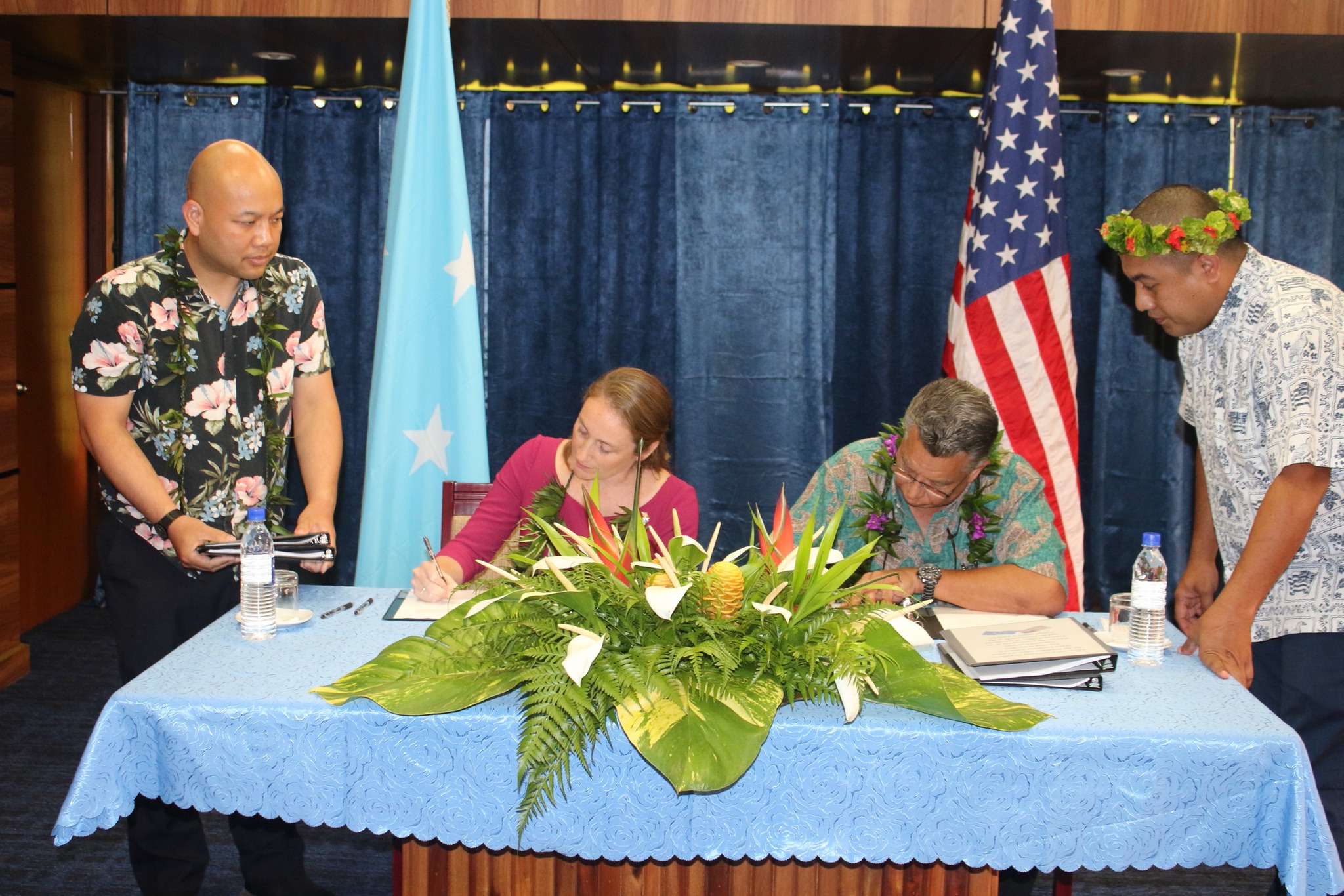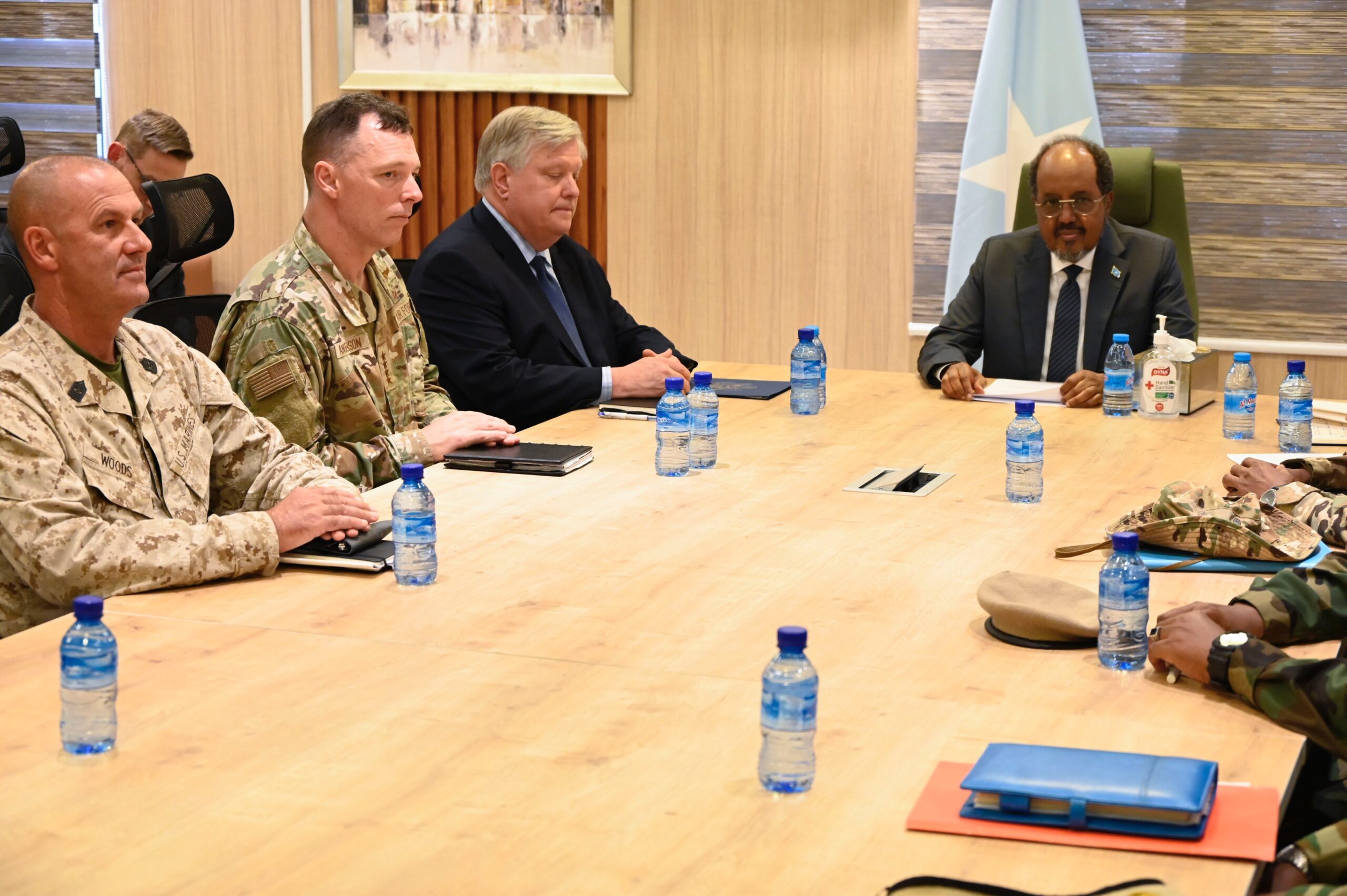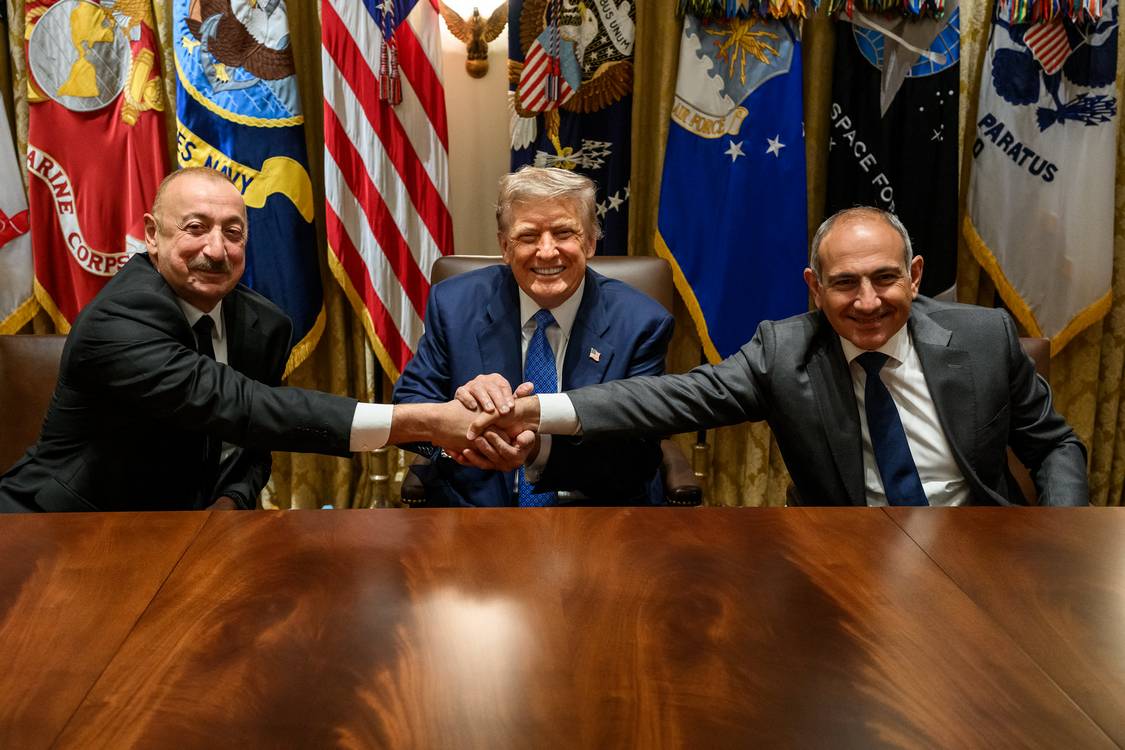US taxpayers have once again been put on the hook for billions in bribe money to three Pacific island nations to ensure the right for the United States military to maintain its robust presence in the world’s largest ocean for the foreseeable future.
These now-canny countries have a lot of experience in dealing with Uncle Sam, and have learned how to trade away their sovereignty for billions of US dollars.
Part of a 4,000-mile area, consisting of over 1,000 islands and other land features like atolls and sandbars, Palau, the Federated States of Micronesia (FSM), and the Marshall Islands, make up what are known in Washington as the “compact states,” referring to the agreements made with them which are officially called compacts of free association.
They allow for several neocolonial exploitative uses that are illegal under international law, such as the right of strategic denial, where the US can reject international requests to sail military assets through the territorial waters of the compact states, which is guaranteed under the UN Law of the Sea, and which the US repeatedly utilizes to sail its ships through the South China Sea and Taiwan Strait.
Remarkably, as detailed brilliantly by Edward Hunt writing in Responsible Statecraft, the compacts also include the right for the US to maintain this exclusive military command of the islands and their waters, even in the case that the island nations withdraw from the compacts, which according to research cited by Hunt, is typical of compacts made between subjugated peoples and their imperial colonial masters in the 18th and 19th centuries.
If a new generation of Pacific islanders emerges into the political class that decides it wants a truly free Indo-Pacific governed by the decisions and charter of the UN, and that it wants to associate with whomever it wishes, it will be unable to dislodge the Navy, Air Force, and Marines for at least the next 20 years, and very likely longer.
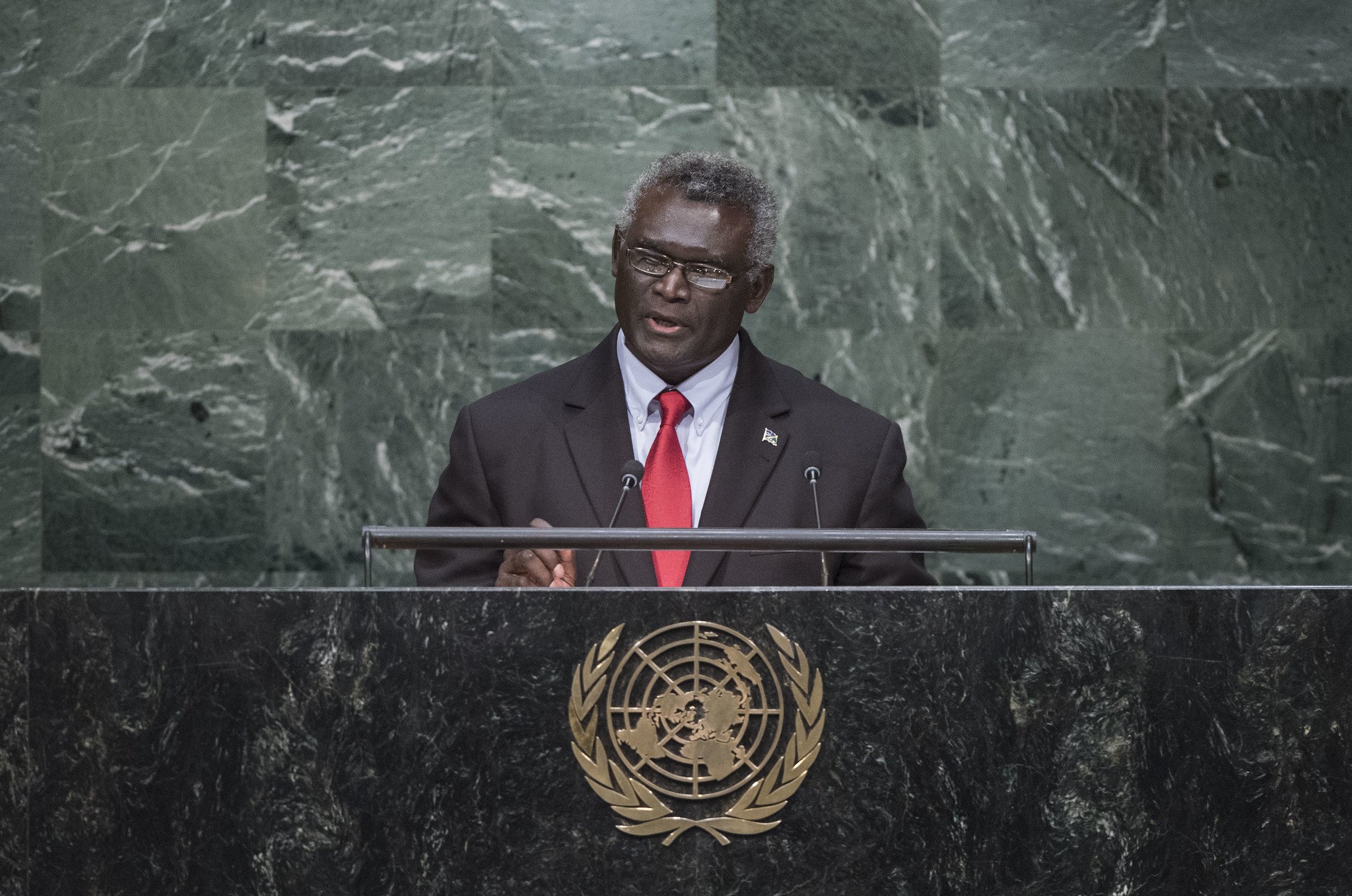
In the language
It’s difficult not to be cynical when reading the language used in statements and discussions dealing with the compacts of free association, as it’s so clearly the substitution of outright colonial exploitation for mass, periodic bribery.
“This relationship that the freely associated states have with the United States is unprecedented,” Col. Grant Newsham (ret.) told Congress as negotiations were ongoing in June 2023. They may be “the only three countries on Earth that have given up their sovereignty and control of a part of their government to the United States”.
What do they get for this? The islands exist in much the same state that other imperial possessions like the American Samoa, Saipan, and Puerto Rico exist. They receive large cash payouts in return for their self-subjugation, and their citizens are allowed visa-free entry and residence in the United States.
The first compacts were concluded in 1986, and the most recent renegotiating period stretched over the course of President Biden’s tenure. Throughout this period, the compact states grew to consider themselves more and more as de facto parts of the United States, like states themselves.
“The United States said the FSM is part of the homeland defense,” former FSM President Panuelo said in February. The United States will treat any attack on the Federated States of Micronesia as if it is an attack on the United States, he added. “It means we are part of the homeland like one of the states or territories of the United States.”
Secretary of State Antony Blinken used the exact same term, “part of the homeland,” to describe FSM.
A “good part of Palau’s sovereignty has been given to the United States,” a Palauan diplomat told the US State Department, “no modern, normative international law would allow this”.
Yet beyond the scope of the compact states, the influence of America stagnated, until 2022, when the Solomon Islands signed a security agreement with Beijing and recognized China’s claim over Taiwan. This obvious embarrassment sent the State Dept. into an obvious emergency, and news outlets, including WaL, reported how nearly three decades of neglected diplomacy were attempted to be carried out in a single calendar year.
Solomon Islands had lacked a US ambassadorial presence for 29 years, and 37 years had passed since the last time a US State Secretary visited any Pacific island. The State Department announced that Indo-Pacific Coordinator Kurt Campbell would travel to the Solomon Islands on a diplomatic tour de force that included Fiji and Papua New Guinea, a new embassy would be opened in the Solomons, and the White House would host an Indo-Pacific diplomatic summit of heads of state for the first time ever.
“After many years, senior U.S. officials suddenly are visiting a Pacific island country with great fanfare,” noted Chinese Foreign Ministry spokesman Wang Wenbin. “We are curious whether they really care about the island country or have another agenda”.
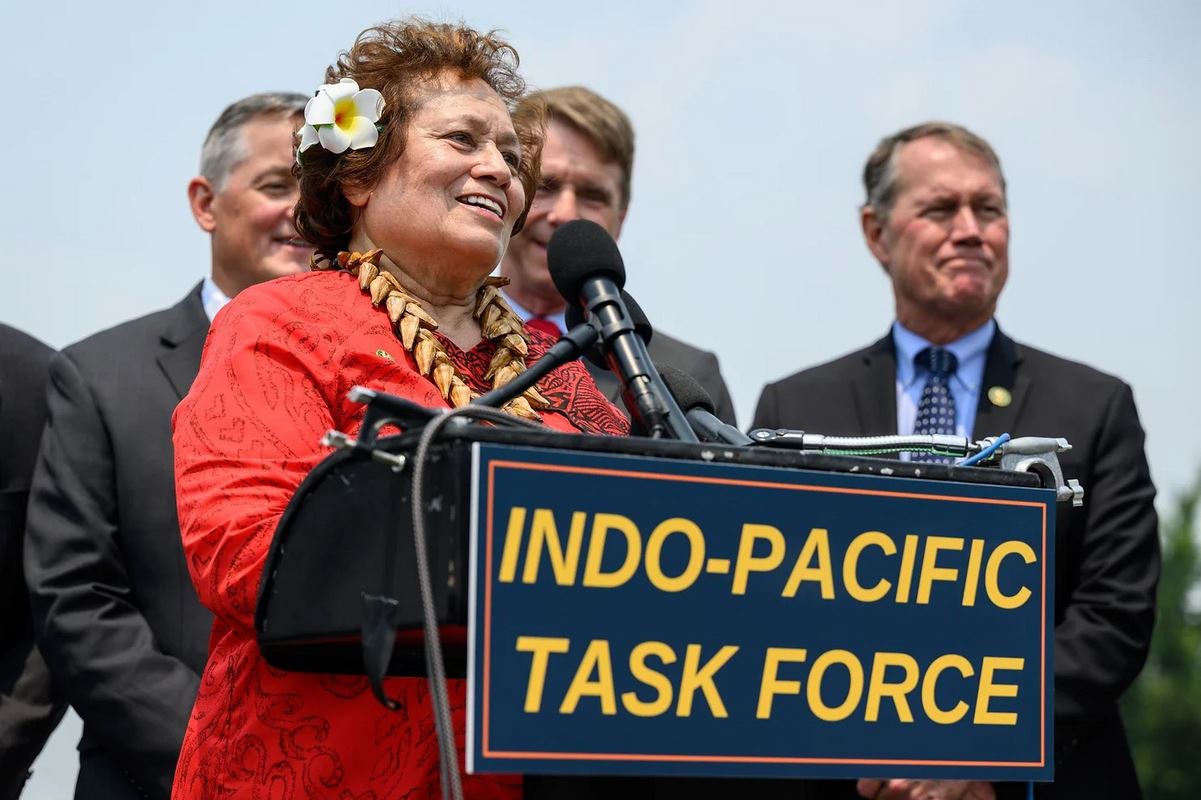
Putting their foot down
“This summit reflects our deep, enduring partnership with the Pacific Islands; one that’s underpinned by shared history, values, and enduring people-to-people ties,” Blinken told leaders as he opened the summit, in what was a truly astonishing claim considering his office’s historic avoidance of the region.
A White House official told reporters at the time that during the summit, which didn’t go well, US officials went “on listening tours to hear from the perspectives of the Pacific about areas that they want the United States to do more”.
Statements from island leaders themselves clarify what this means—payment.
“Every single day that passes without the compact being funded… makes it more likely that the FSM will become further beholden to China instead of our traditional allies,” Penuelo told the Financial Times before the new 15-year compacts were signed.
Compare the language in the statement, especially considering Solomon Islands’ change of allegiance, to the archetypal mafioso veiled threat of how nice your restaurant is and what a shame it would be if something were to happen to it.
Another compact state, the Marshall Islands, didn’t wait around for compact to be signed. Declining its invitation to Biden’s Indo-Pacific summit, the country’s Foreign Minister wanted to discuss, in private, just two things: China and climate change.
“It’s because of China. We’re not naive,” Minister Kitlang Kabua told the Washington Post’s Pete McKenzie. The Post reports that three offers had to be made to the Marshallese, with the third being a substantial increase equaling 400% of what the US had previously paid for the Mashall Islands sovereignty, and may total over $1 billion.
“We were much more wary, we were less naive, we put our foot down and made our demands,” Kabua told the Post. “We found that this is how we operate with the US, and we found it to be effective”.
On the total value of the compact negotiations, the State Dept. stated it was worth $7.1 billion.
Even apart from that, more Pacific states are beginning to accept bribes for the purpose of withholding diplomatic cooperation for the US at the expense of China. Statements made by Representative Aumua Amata Coleman Radewagen of American Samoa, following the passage of a recent House bill, demonstrate that the Pacific is more and more on Washington’s mind.
“While Congress has done its job to extend the Compacts of Free Association for another 20 years, those only focus on three Pacific island countries. There are 11 others who need our attention,” Radewagen said after the passage of the Pacific Partnership Act, which hasn’t been signed into law. “The 2022 security pact between Beijing and the Solomon Islands was seen by many as an alarming wake-up call”.
The bill would establish enhanced cooperation in “defense, diplomatic and economic domains,” and grant the Pacific Islands Forum, the region’s official diplomatic body for international cooperation, extensive rights and privileges including exemption from most federal taxes and customs duties. WaL
We Humbly Ask For Your Support—Follow the link here to see all the ways, monetary and non-monetary.
PICTURED ABOVE: Officials signing the Compact of Free Association at the US Embassy in the Federated States of Micronesia. PC: fm.usembassy.gov.
